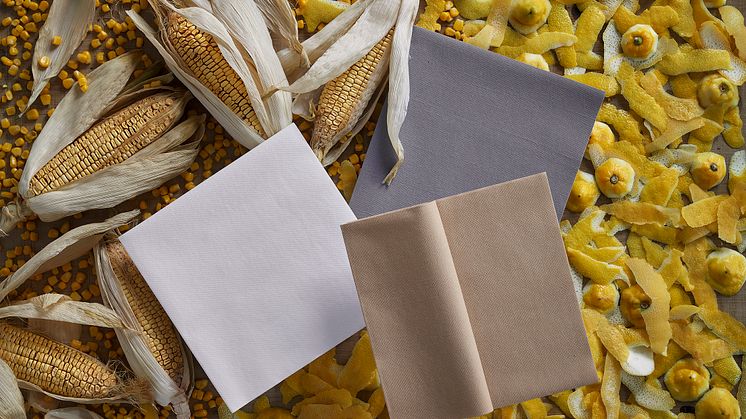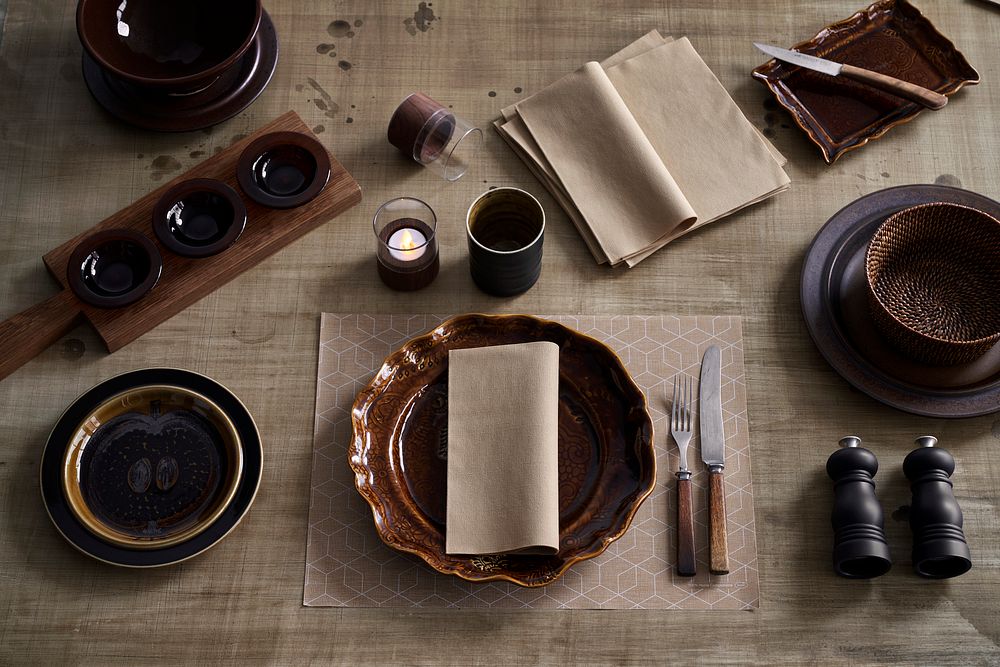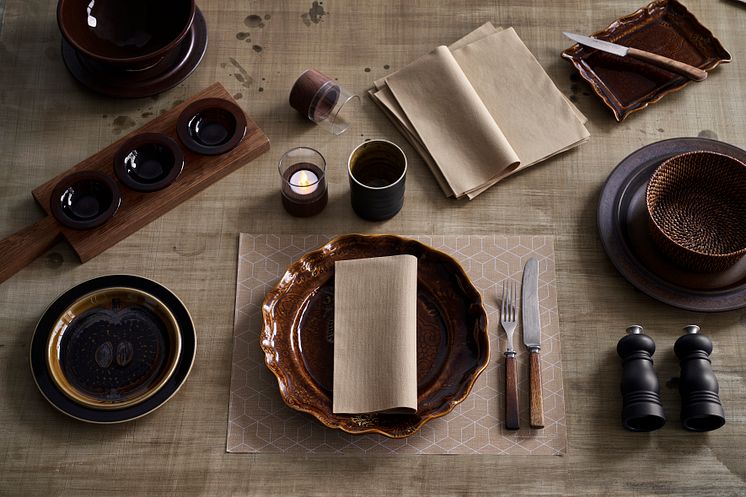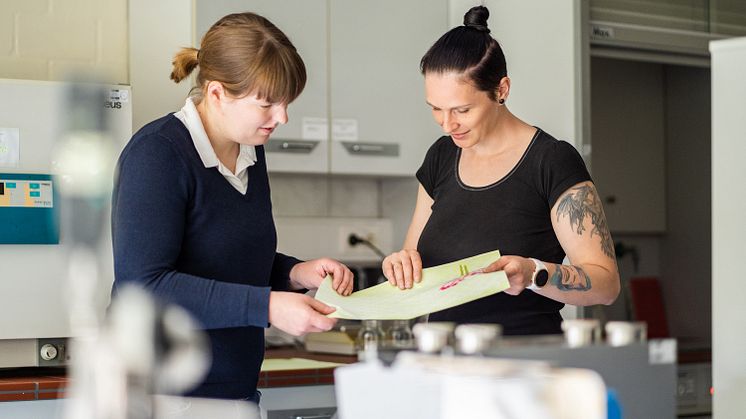
Blog post -
Food waste becomes napkins in a circular model
We are used to food residues ending up on the napkins at mealtimes. Now Duni is considering the idea of having food waste in napkins even before they are put on the table. It is not as bad as it might seem.
Together with the Swedish materials technology company OrganoClick, Duni has developed new Bio Dunisoft® napkins in which part of the binder has been replaced by OC-BioBinder™, a binder made from corn, lemon peel and other food waste.
This makes the new material even more suitable for a circular model. Bio Dunisoft® is not only fossil-free, with a smaller carbon footprint. The product is supplied in new fiber-based outer packaging with a new layout.
Founded in 2006, OrganoClick has won several awards for its green innovations in the design of renewable, functional cellulose-based materials. Through their natural chemistry solutions, a wide range of products in the textile, wood and biocomposite industries can become biodegradable, non-toxic and compostable.
An important transition for the sector
“It’s a small step for lemon peel and potatoes, but a big step for the industry,” says Emma Björnhammer, Product Team Manager, commenting on the launch of Duni’s fossil-free Bio Dunisoft® premium napkins and Bio Dunicel® placemats by Business Area Duni. With the shift to fossil-free binders, which contain food waste and plant-based raw materials, the Group is moving towards an increasingly circular business model.
“These are our most important launches in ten years. They are part of our long-term plan to increase the use of renewable materials, phase out all fossil plastics from the product portfolio and to be a fully circular business by 2030,” Emma explains.
Eleven products have already been launched and there is a three-year plan to switch all old materials to the new binders. Products are delivered in new, fiber-based and plastic-free packaging that can be recycled as paper or cardboard.



